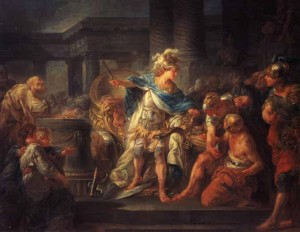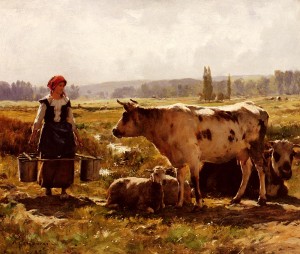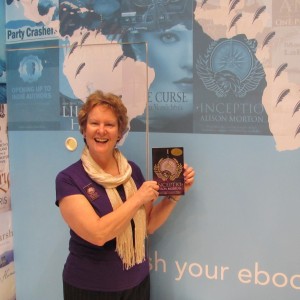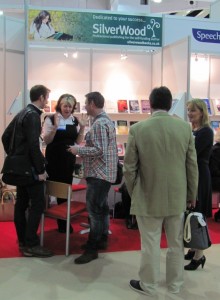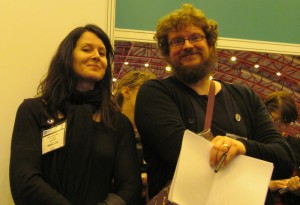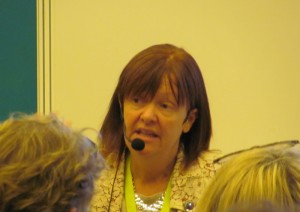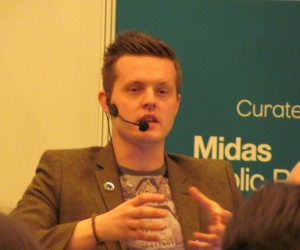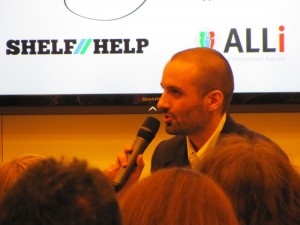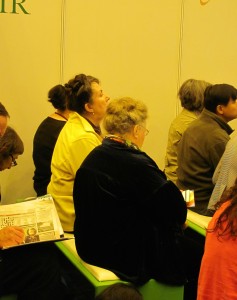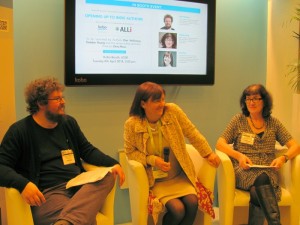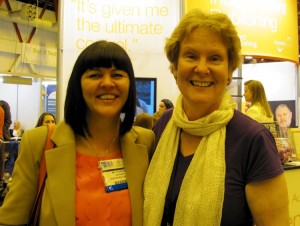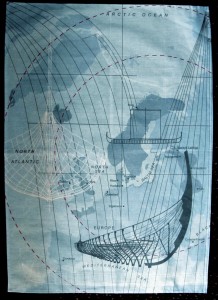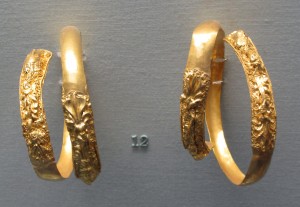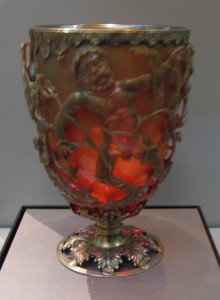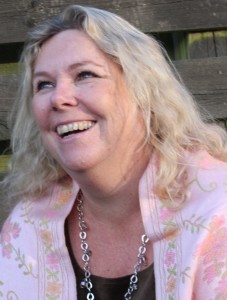 When I was young, I was quite convinced I was a reincarnated medieval soul, so closely connected did I feel to all those kings and knights I read about. These days, I lean towards blaming my vivid imagination for all those déjà vu experiences, such as the time I created my own medieval costume “from memory”, or that rather memorable occasion when I made my own, far too potent honeyed ale and explained my behaviour to my father by repeating over and over again (with a somewhat woolly tongue) that everyone knew it was better to drink ale than water. I can still recall the bemused expression on my father’s face as he regarded his tipsy eleven-year-old daughter, who also took the opportunity to bemoan the fact that she was born a GIRL, when her age-old soul was a BOY – a royal page, no less.
When I was young, I was quite convinced I was a reincarnated medieval soul, so closely connected did I feel to all those kings and knights I read about. These days, I lean towards blaming my vivid imagination for all those déjà vu experiences, such as the time I created my own medieval costume “from memory”, or that rather memorable occasion when I made my own, far too potent honeyed ale and explained my behaviour to my father by repeating over and over again (with a somewhat woolly tongue) that everyone knew it was better to drink ale than water. I can still recall the bemused expression on my father’s face as he regarded his tipsy eleven-year-old daughter, who also took the opportunity to bemoan the fact that she was born a GIRL, when her age-old soul was a BOY – a royal page, no less.
Far be it from me to discount reincarnation as nonsense. In actual fact, the idea of successively clambering one’s way towards Nirvana by attempting to lead good lives is rather attractive. What I must, however, regard as an impossibility is the idea of time-travelling – at least in my life time. This is, in my opinion a major loss. Not that I would necessarily want to go back in time and stay there, but seriously; to peek while Alexander the Great slices the Gordian knot, or to stand to the side as Charles II sets his foot on English soil after a decade or more as a destitute exile, or converse with Diego Velazquez as he adds the finishing touches to yet another painted masterpiece – tantalizing prospects all of them. (I wonder if one can be reincarnated backwards in time? If so, I’m volunteering!)
What one can’t achieve in real life, one can allow to flower wildly in one’s books. Just like you, Alison, have decided to rectify the historical mistake that had the entire Roman Empire succumbing by creating your Roma Nova, safely ensconced somewhere in between Italy and Austria, so I have decided to bypass the ridiculous rules of physics and send my protagonist spinning through time, right back to the 17th century.
One question I get now and then is why my Alex doesn’t use her vast modern knowledge to improve the lots of people in her new time. Err… vast modern knowledge? Leaving aside the fact that it would probably be somewhat unwise to start spouting truisms re Darwin and dinosaurs and the existence of heavenly bodies such as Pluto – well, unless you aspired to die as a witch – Alex is a computer expert. Not all that many laptops lying about in the 17th century, let me tell you. Also, what skills do any of us truly possess that would help us survive in long gone times? How many of us have wrung the neck of a hen? Gutted it and plucked it? How many have done the same to a pig? (Well, obviously not wring its head, but slice its throat – nor do pigs have feathers…) Let’s face it; Alex is seriously inept for life in her new environment. She has never milked a cow, or worked for interminable days bringing in the harvest. Like most of us, Alex has bought her clothes, now she has to make them.
The point I’m trying to make is that very little of what we consider relevant knowledge to cope with our times would be of any value in a time so different from ours. Yes, we could contribute by ensuring people worked on their hygiene (which Alex does). Yes, we could broaden their outlook by (carefully – globetrotting was not all that common back then) hinting at other cultures and places – which Alex does. We obviously have a better take on what constitutes a healthy diet, so we could make sure people ate more raw vegetables, less of the ale and bread, far less of the salted pork and fish – well, until we’re in mid-February, and there is NOTHING to eat that isn’t salted or conserved somehow… It’s not as if there’s a nearby Tesco’s at which you can drop in for some oranges and tomatoes.
 When writing The Graham Saga, I have spent a lot of time researching the historical setting – a labour of love, in that I get stuck reading stuff that has no bearing whatsoever on my books but broadens my understanding of the day and age I am trying to describe. I have also spent very many hours pondering just what Alex could contribute to her 17th century family, apart from being herself, of course. Not very much – particularly as Alex never was any major fan of History at school (I know, I know; I berate her about this but she just shrugs, saying she preferred boys and maths. Boys? As far as I recall, there was no subject called boys when I went to school… Alex snorts.)
When writing The Graham Saga, I have spent a lot of time researching the historical setting – a labour of love, in that I get stuck reading stuff that has no bearing whatsoever on my books but broadens my understanding of the day and age I am trying to describe. I have also spent very many hours pondering just what Alex could contribute to her 17th century family, apart from being herself, of course. Not very much – particularly as Alex never was any major fan of History at school (I know, I know; I berate her about this but she just shrugs, saying she preferred boys and maths. Boys? As far as I recall, there was no subject called boys when I went to school… Alex snorts.)
Finally, it is my firm belief that if one was to be yanked out of time and propelled several centuries backwards, basic survival instincts would kick in: don’t stick out, try to conform, listen and learn. Human beings have an innate capacity to adapt to new circumstances and societies – it’s what makes us such a successful species. But to survive, Alex would have to submerge a lot of her modern characteristics, and over time her previous life would recede to be nothing but a faint echo in the further corners of her brain, allowing her to concentrate on the here and now.
 So there you are: my time travelling protagonist is not a wannabe engineer who invents washing machines three centuries before they saw the light of the day. (But she would‘ve loved it if she could). Nor does she introduce the ancient hypocaust method to heat her 17th century home, or experiment with advanced surgery. She just gets on with life and makes the best of it – as most of us do. In her case, of course, she lives a very exciting life. Very – why else go to all the trouble of writing a whole series about her? Which is why, if you ask her, Alex will tell you the single most valuable skill she brought with her from the 21st century is her black belt in karate. Matthew is not entirely sure he agrees; in his world, women don’t go kicking people to the ground when they’re threatened. No, in his time, it’s the men that do the defending.
So there you are: my time travelling protagonist is not a wannabe engineer who invents washing machines three centuries before they saw the light of the day. (But she would‘ve loved it if she could). Nor does she introduce the ancient hypocaust method to heat her 17th century home, or experiment with advanced surgery. She just gets on with life and makes the best of it – as most of us do. In her case, of course, she lives a very exciting life. Very – why else go to all the trouble of writing a whole series about her? Which is why, if you ask her, Alex will tell you the single most valuable skill she brought with her from the 21st century is her black belt in karate. Matthew is not entirely sure he agrees; in his world, women don’t go kicking people to the ground when they’re threatened. No, in his time, it’s the men that do the defending.
“Tough.” Alex rolls her eyes at him, a smile tugging at her mouth (They’ve had this discussion many, many times by now).
“Aye that you are; like old boots,” he retorts, flashing her a teasing grin.
“Matthew!” She tries to scowl, but when he snakes an arm round her waist and pulls her close, she sort of moulds herself to him, a perfect fit of curves and sharp planes.
Sometimes I regard my leading couple with a sting of jealousy; they were made for each other those two – well, no surprise really, is it? 😉
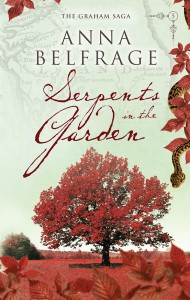 About Anna…
About Anna…
Anna Belfrage is the author of five published books, A Rip in the Veil , Like Chaff in the Wind, The Prodigal Son, A Newfound Land, and Serpents in the Garden. The next instalment in The Graham Saga, Revenge and Retribution is due for release July 1 and is to some extent set in Titus Oates’ London.
Set in 17th century Scotland and Virginia/Maryland, The Graham Saga tell the story of Matthew and Alex, two people who should never have met – not when she was born three hundred years after him.
Find out more about Anna and her books, visit her blog, or her website
More about The Graham Saga on Amazon UK and on Amazon US
Alison Morton is the author of Roma Nova thrillers, INCEPTIO, and PERFIDITAS. Third in series, SUCCESSIO, is out early summer 2014.




